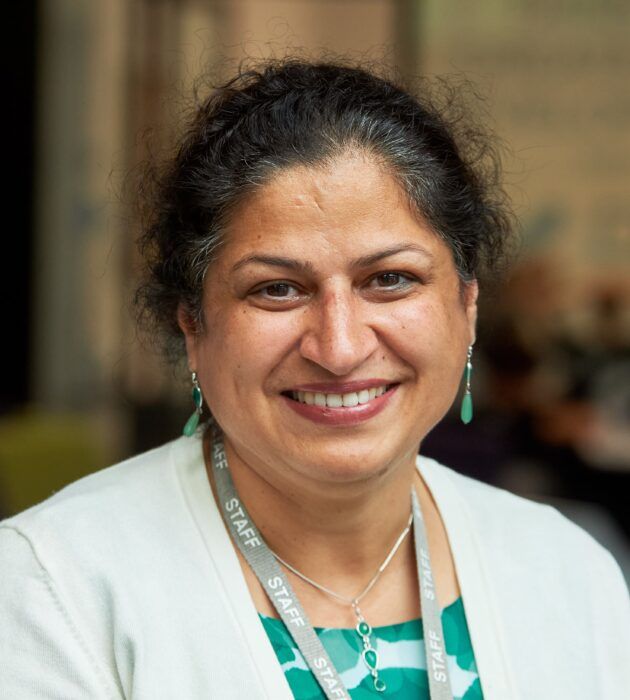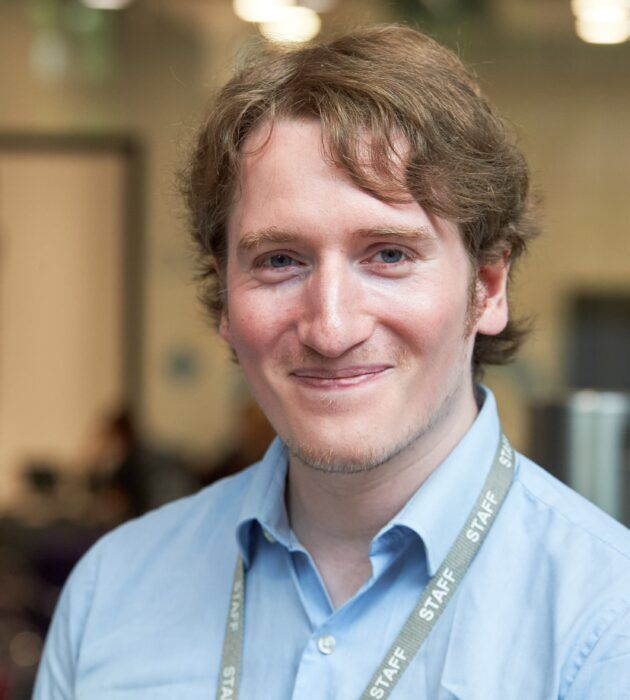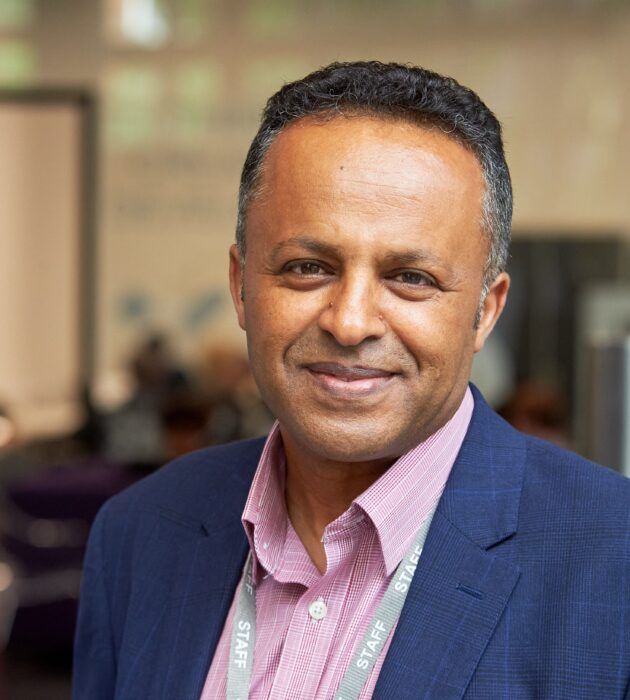BTEC Level 3 (RQF)
Exam board: BTEC Level 3 National Diploma in Computing (RQF) – (720 GLH equivalent to 2 A-levels)
Why study this course?
Do you want to develop the skills and the technical know-how to change the digital industry? Computer Science is at the core of all our curriculum pathways, propelling you to where you want to be. It’s not exclusively about learning to code, or learning to create digital products, but rather about problem-solving, thinking laterally and becoming a successful lifelong learner.
Computer Science at Ada is a groundbreaking effort to change the way we educate young people to be job-ready for the future. This course will have 10 hours per week of timetabled Computer Science lessons.
The Computer Science curriculum actively incorporates the expertise of our digital industry partners alongside that of our experienced teaching team and ensures our programmes of study offer outstanding opportunities for learners to develop in-demand, industry-ready skills that allow them to make excellent progress in their chosen digital career.
What will you learn?
Unit Details
Eight units of which six are mandatory and three are external and assessed by exams (Unit 1, Unit 2) or controlled assessments (Unit 3).
Mandatory units
Unit 1: Principles of Computer Science (120 GLH) – External Exam
This unit covers the principles that underpin all areas of computer science. It will develop your knowledge of computational-thinking and support you in demonstrating your ability to analyse and interpret problems and develop detailed and complex solutions in response. You will gain an in-depth understanding of programming constructs and a thorough understanding of how data is handled in a computer program.
Unit 2: Fundamentals of Computer Systems (90 GLH) – External Exam
In this unit you study the fundamental principles of how computer systems work and will gain underpinning knowledge on the role of hardware and software, the way components of a system work together and how data in a system is used. You will develop skills in applying knowledge of computing to deconstruct problems, drawing on various sources of information to develop effective solutions with justification. You will develop the ability to evaluate the effectiveness of computer systems to make justified recommendations on their development.
Unit 3: Planning and Management of Computing Projects (120 GLH) – External Assessment
Develop your knowledge and understanding of the role of a computing project management professional and gain the skills necessary to apply project planning and management techniques to given computing project scenarios. The application and further development of these skills also forms an intrinsic part of the Industry Projects.
Unit 7: IT Systems Security & Encryption (90 GLH) – Internal Assessment
Learn about the different types of security attack and develop your knowledge of how to protect IT networks from such attacks. Learn about encryption and gain knowledge of various encryption techniques. Undertake practical activities using a range of software simulation tools and sandboxed virtualisation environments to develop your practical skills, such as by ‘hardening’ computer servers against potential security threats, in protecting IT systems.
Unit 8: Business Applications of Social Media (90 GLH) – Internal Assessment
Explore different social media sites and gain knowledge on how organisations can use social media to promote their products and/or service and the potential pitfalls when doing so. Leverage that knowledge to develop skills in designing and implementing a social media plan for an organisation to meet its specific business requirements.
Unit 9: The Impact of Computing (90 GLH) – Internal Assessment
Study the impact that developments in computing have on organisations and wider society. Develop a plan to implement a computing technology development in an organisation and then review using feedback from others to analyse the skills, knowledge and behaviours that you practised during this activity.
Additional units
Unit 17: Mobile App Development (60 GLH) – Internal Assessment
Investigate mobile apps, how they are used, why they are created, the differences between devices and the implications of creating and using software on mobile devices. Study the design considerations inherent in mobile apps design. Use this acquired knowledge to help develop your skills in designing, developing, testing and evaluating mobile apps to fulfil a specific set of client requirements.
Unit 14: Computer Game Development (60 GLH) – Internal Assessment
Investigate the computer games industry and its impact on technological and social trends. Develop your knowledge of game genres, player categorisation, game design techniques, production options and monetisation strategies. Apply this knowledge and your emerging programming skills to design, develop and test a computer game to meet exacting user requirements.
How will I be taught?
- We lead with concepts – supporting learners in the acquisition of knowledge, through the use of key concepts, terms and vocabulary, providing opportunities to build a shared and consistent understanding;
- We use project-based learning activities and direct industry engagement to provide learners with ample opportunity to apply and consolidate their knowledge and skills;
- We encourage learner collaboration through paired programming and structured group tasks in order to stimulate classroom discussion, articulation of concepts and development of a shared understanding
How will I be assessed?
| Unit | Type | Availability |
|---|---|---|
| Unit 1: Principles of Computer Science | – Written examination set and marked by Pearson – 90 marks – Two hours | Jan and May/June. First assessment: May/June 2017. |
| Unit 2: Fundamentals of Computer Systemd | – Written examination set and marked by Pearson – 80 marks – 1 hour and 45 minutes | Jan and May/June. First assessment: May/June 2017. |
| Unit 3: Planning and Management of Computer Projects | – A task set and marked by Pearson and completed under supervised conditions. – There are two assessment periods. Part A is a maximum of three hours in a one week period and Part B is a maximum of two hours in a three day period. Both periods are timetabled by Pearson. – Completed using a computer and submitted electronically. – 66 marks. | Dec/Jan and May/June. First assessment: Dec/Jan 2018. |
Each external assessment is available to be taken twice per year. These are referred to as the January Exam Series and the June Exam Series. At Ada, we have successfully structured our courses, and our learners achieved great success, by adopting the following exam timetable:
| Unit | First sit | Re-Sit (only where this is considered necessary) |
|---|---|---|
| Unit 1 | Y12 – June Exam Series (i.e., June 2026) | Y13 – Jan Exam Series (i.e., January 2027) |
| Unit 2 | Y12 – June Exam Series (i.e., June 2026) | Y13 – Jan Exam Series (i.e., January 2027) |
| Unit 3 | Y13 – Jan Exam Series (i.e., January 2027) | Y13 – June Exam Series (i.e.,May 2027) |
Year 1 ( Sep 2025 – July 2026)
Unit No & Title:
- Unit 14 Computer Games Development Part A
- Unit 14 Computer Games Development Part B&C
- Unit 7 IT Systems Security and Encryption Part A&B
- Unit 7 IT Systems Security and Encryption Part C&D
Year 2 (Sept 2026 – July 2027)
Unit No & Title
- Unit 9 Impact of Computing Part A&B
- Unit 9 Impact of Computing C&D
- Unit 8 Business Applications of Social Media A
- Unit 8 Business Applications of Social Media B&C
- Unit 17 Mobile App Development Part A
- Unit 17 Mobile App Development Part B&C
Where will this take me?
Computer Science is at the heart of the digital revolution affecting all aspects of our working and social lives. Its impact is unparalleled and its reach unrivalled. We have designed our curriculum to cohesively bring together a diverse range of course units that underpin the wider Computer Science field and for which we have evidenced strong industry demand. This ensures excellent progression opportunities to Degree Apprenticeships in Software Development, Tech Consulting, Networking, and Cybersecurity or on to university courses such as Computer Science, Cybersecurity, Games Design and Development, Software Engineering, Software Development and eSports.
T Level in Digital Software
Exam board: T Level Technical Qualification in Digital Software Development
(Level 3) – (1200 GLH equivalent to 3 A-levels + 45 day placement)
Why study this course?
T Levels are two-year, Level 3 study programmes that follow the study of GCSEs and Technical Awards and offer an alternative to A-levels and Apprenticeships.
T Levels combine classroom theory, practical learning and a minimum 315 hours of industry placement with an employer. The work placement ensures students have real experience of the workplace. T Levels are developed in collaboration with employers so that the content meets the needs of industry and prepares students for work. T Levels provide the knowledge and experience needed to progress to highly skilled employment, an apprenticeship or higher-level study, including university.
What will you learn?
Students learn about the following topics:
- Problem solving
- Introduction to programming
- Emerging issues
- Legislation and regulatory requirements
- Business context
- Data
- Digital environments
- Security.
The T Level focuses on:
- Full-stack and agile software development
- Industry-aligned digital skills
- Real-world experience and professional readiness via placement
How will I be taught?
- We lead with concepts – supporting learners in the acquisition of knowledge, through the use of key concepts, terms and vocabulary, providing opportunities to build a shared and consistent understanding;
- We use project-based learning activities and direct industry engagement to provide learners with ample opportunity to apply and consolidate their knowledge and skills;
- We encourage learner collaboration through paired programming and structured group tasks in order to stimulate classroom discussion, articulation of concepts and development of a shared understanding;
- We model processes and practices using techniques such as worked examples and live coding and believe modelling is particularly beneficial as a means of providing scaffolding
How will I be assessed?
Year 12 Core Component – 600 GLH
| Assessment component | Assessment method | Duration | Marks | Weighting | Timetable | Availability |
|---|---|---|---|---|---|---|
| Core Paper 1 | Written examination | 2 hours 15 minutes | 90 | 30% | Set date/time | June/November |
| Core Paper 2 | Written examination | 2 hours 15 minutes | 90 | 30% | Set date/time | June/November |
| Employer Set Project | Externally set project | 14 hours 30 minutes | 100 | 40% | Set date/time | May/November |
Core Paper 1 = 30% of core (15% of total) – First attempt June 2026/ Second attempt Nov 2026
Core Paper 2 = 30% of core (15% of total) – First attempt June 2026/ Second attempt Nov 2026
Core ESP = 40% of core (20% of total) First attempt May 2026/ Second attempt Nov 2026
Core ESP Assessment overview:
There are five parts to the assessment:
- Task 1: Planning a project
- Task 2: Identifying and fixing defects in an existing code
- Task 3: Designing a solution
- Task 4a: Developing a solution
- Task 4b: Reflective evaluation.
Students will undertake the assessed elements of the project tasks under
supervised conditions. The assessment will take place over multiple sessions up to a combined duration of 14 hours 30 minutes.
Year 13 – Occupational Specialism, 600 GLH
Occupational Specialism = 50% of total
| Assessment component | Assessment method | Duration | Marks | Weighting | Timetable | Availability |
|---|---|---|---|---|---|---|
| Digital software development | Externally set project | 50 hours 30 minutes | 144 | 100% | Windowed | March to May |
Performance Outcomes: In this project students will:
PO1 – Analyse a problem to define requirements and acceptance criteria,
aligned to user needs
PO2 – Design, implement and test software
PO3 – Change, maintain and support software
PO4 – Create solutions in a social and collaborative environment
PO5 – Discover, evaluate and apply reliable sources of knowledge
PO6 – Apply ethical principles and manage risks in line with legal and regulatory
requirements when developing software
Note:
Core and Employer Set Project (ESP) components are graded A–E or Unclassified. The Occupational Specialism (OS) component is graded Pass, Merit, Distinction or Unclassified. The overall grading is on a scale of Pass, Merit, Distinction, Distinction or Unclassified. The overall grade is awarded by the Institute for Apprenticeships and Technical Education (IfATE).
Where will this take me?
Best suited to students already confident in programming and highly career-focused, this pathway offers a vocational, project-led route into degree apprenticeships or direct roles in software engineering, DevOps, and digital systems development. This Technical Qualification aligns to the Level 3 Apprenticeship for Software
Development Technicians. The qualification therefore supports progression to entry-level job opportunities in software development.
Job roles could include:
- Software Development Technician
- Junior Developer
- Junior Web Developer
- Junior Application Developer
- Junior Mobile App Developer
- Junior Games Developer
- Junior Software Developer
- Junior Application Support Analyst
- Junior Programmer
- Assistant Programmer
- Automated Test Developer.
Key links:
https://qualifications.pearson.com/en/qualifications/t-levels/digital-software-development.html
Something to watch: https://www.youtube.com/watch?v=-nNNczEW-QM
Teaching staff
Managers and teachers work frequently with employers to ensure that students develop the knowledge and skills required by the digital sector. All students work on industry projects.






